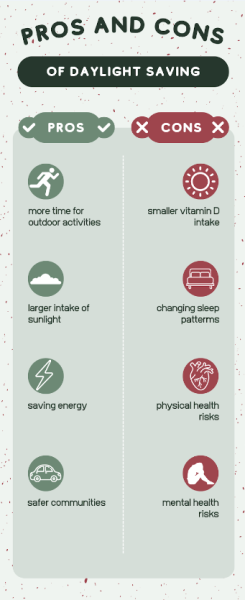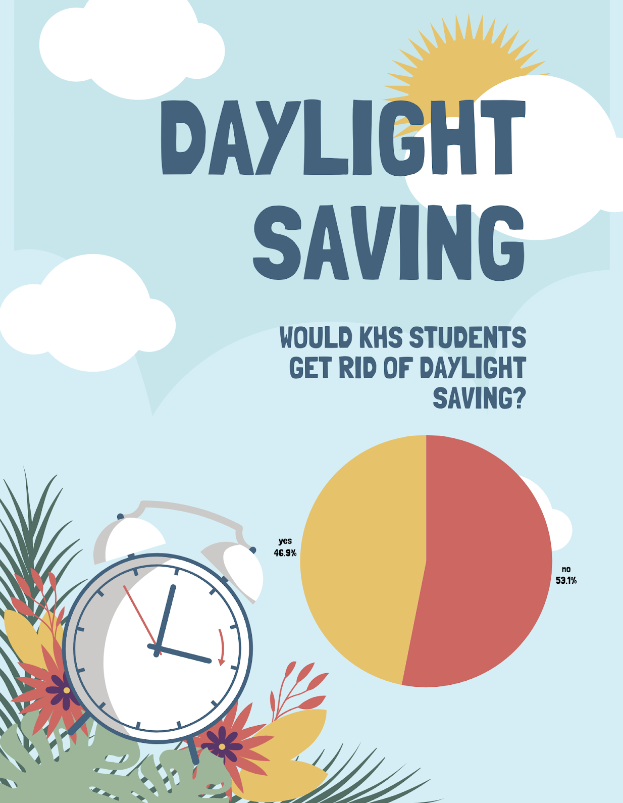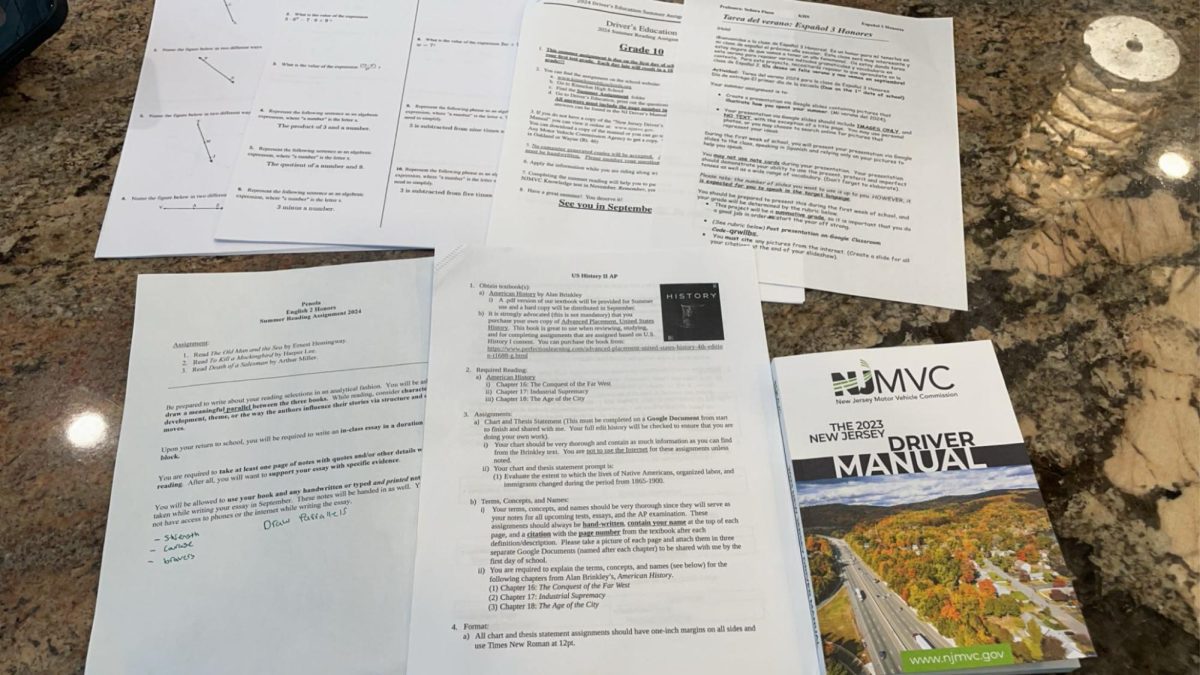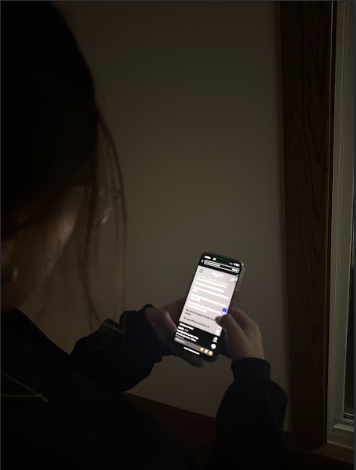Around every 240 days, the world experiences arguably two of the most hated days of the year. The clock changes, when the world either “springs forward,” or “falls back” into reality. Despite this annual occurrence, many people do not know why some countries practice daylight saving.
Daylight saving is the turning of the clocks either forward or backward based on the temperature and intake of sunlight. Daylight saving started with the Standard Time Act in March 1918, but it was repealed in 1919. It was established to conserve energy during World War I. When World War II began, the act was reinstated. This idea saved fuel costs by using more sunlight, rather than artificial light. Now, around a third of the countries still practice daylight saving today.
The Kinnelon community has conflicting views on daylight saving. A survey conducted at Kinnelon High School showed that 53.1% of students said that they would get rid of daylight saving if they had the option, while 62.5% of the surveyed students felt that daylight saving does not have any health benefits.
“I feel like when it’s dark, I don’t want to do my schoolwork, and the only thing I want to do is sleep,” said freshman Sage Kayden. “I don’t feel like I gain anything from daylight saving. There’s not really any point to it that I know of.”
Daylight saving has been proven to change the body’s circadian rhythm, which controls someone’s behavioral changes throughout a 24-hour period. This explains the common tiredness and changes in mood. Many students added that the time shift also hurts their sleep schedules and vitamin D intake.
Freshman Sam Baldino said, “It just seems to mess everyone up. Daylight saving toys with people’s sleep schedules, causing car accidents, heart attacks, and other issues.”
Freshman Alice Levi also worries about her health during the clock changes. She said, “I feel like when the clocks change, I’m never outside when it’s light out, so my body doesn’t get important vitamins.”

While many people feel the negative effects of daylight saving, there are ways to ensure that peoples’ bodies continue to feel well-rested and healthy. According to the Sleep Foundation, getting enough sleep before the clock changes and maintaining a healthy diet are a few ways to prepare for daylight saving.
The New York Times adds that anything that makes people feel relaxed can help with the adjustment. Weighted blankets and meditation are often considered relaxors that can help prepare for the time change.
As society “springs forward” into March of 2024, chaos and panic may ensue. But in reality, daylight saving is just a means of measurement. While there are many health concerns linked to the shift, all people can do is get through the few tough days and make the most of their new time frame. After all, even time needs a change of scenery.









